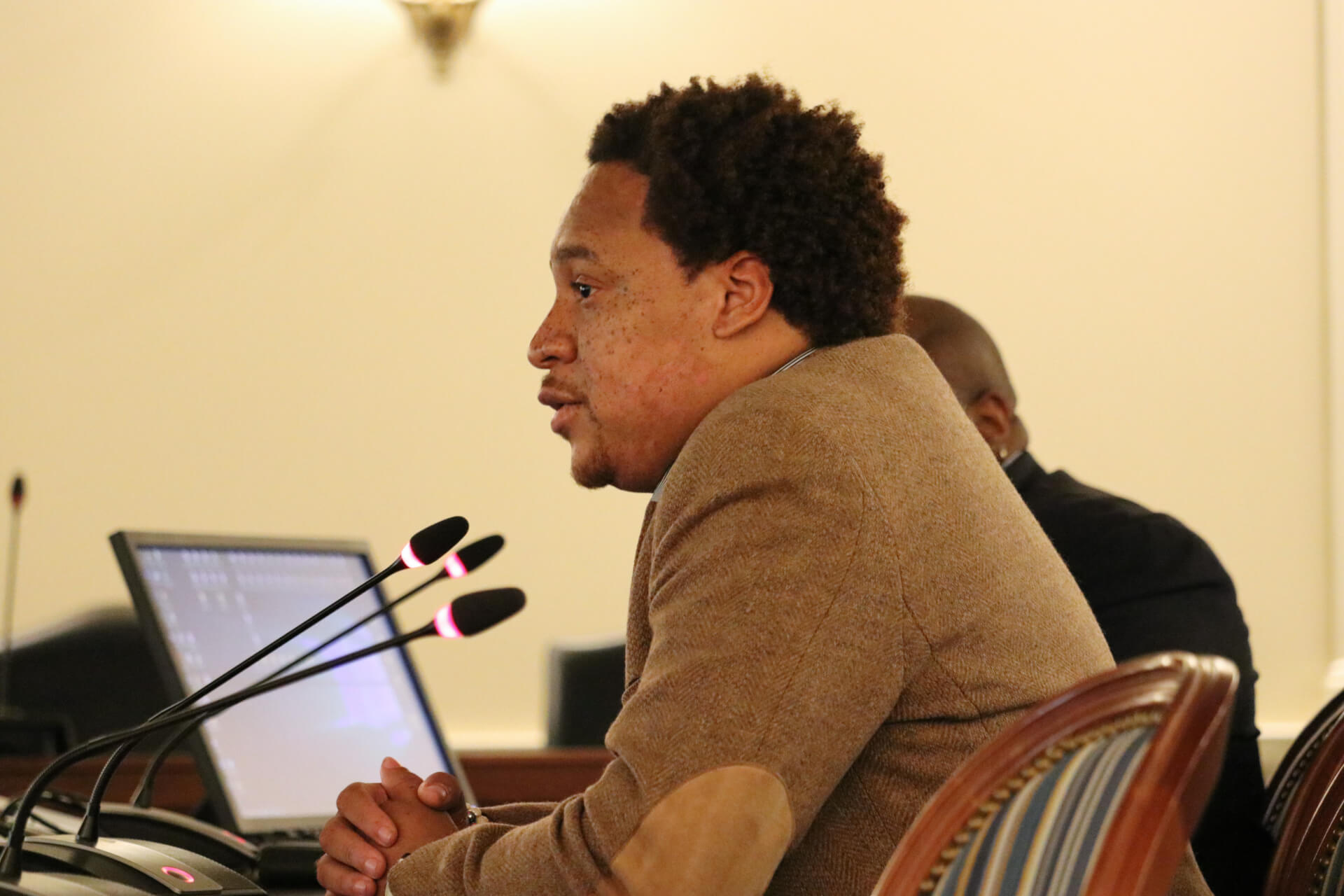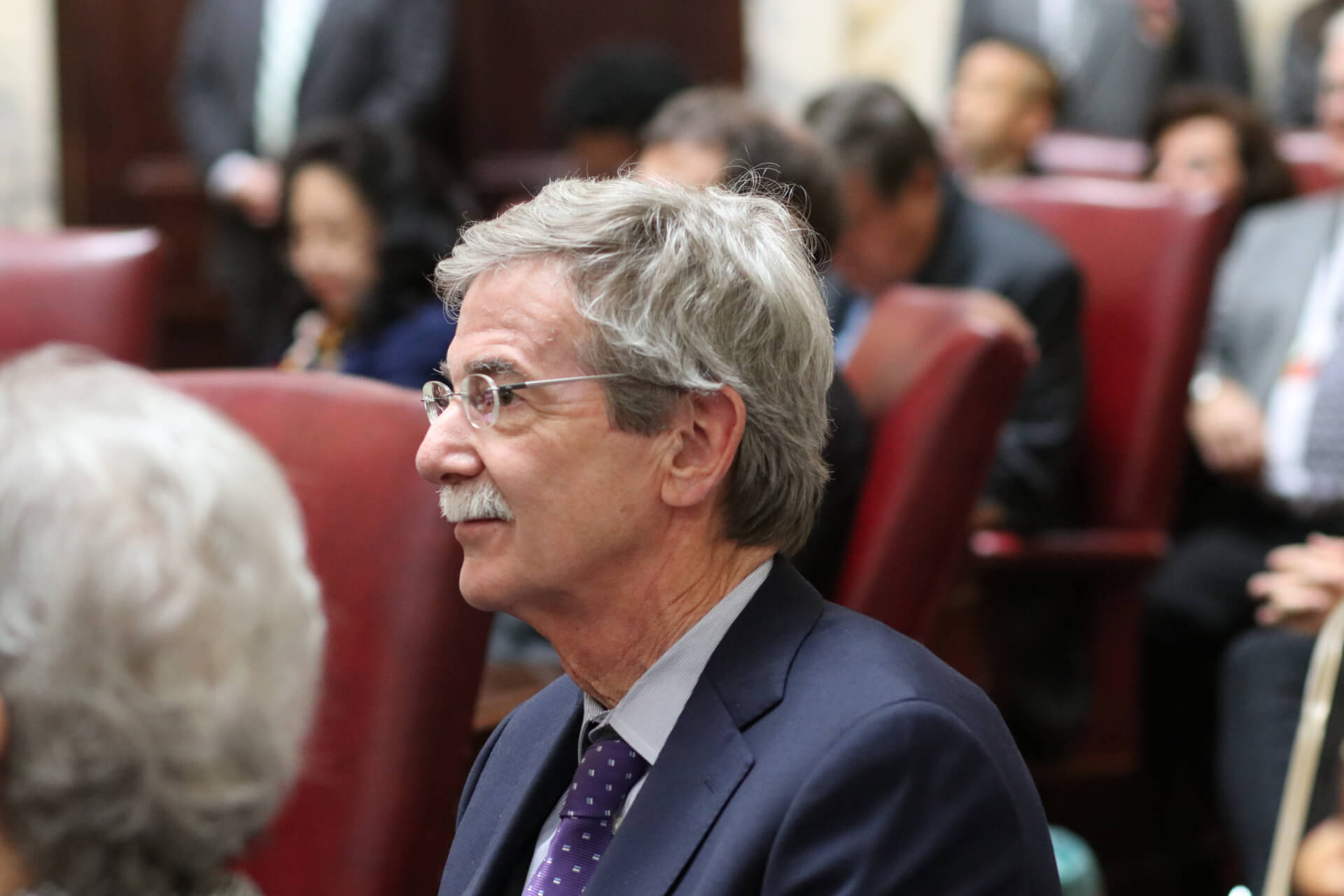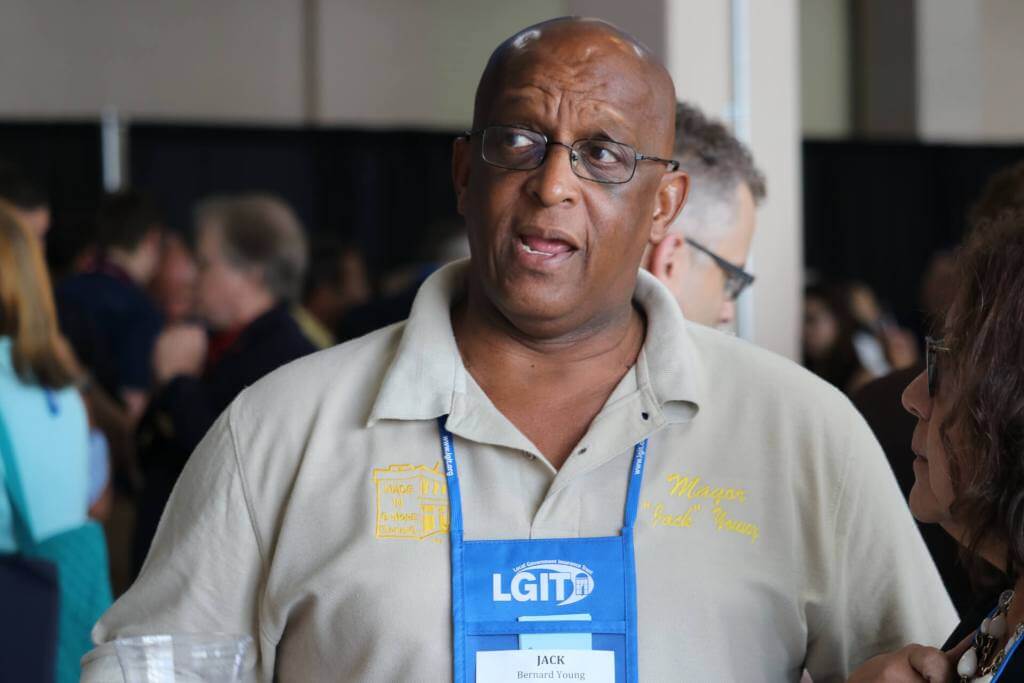City Civilian Review Board Leaders Press for More Power to Investigate Police

Two leaders of Baltimore’s Civilian Review Board told a state commission investigating police corruption Thursday that changes are needed to create more robust civilian oversight and to avoid Baltimore Police Department influence in internal investigations.
“We all know the history of police departments investigating themselves. I think we can all agree that they don’t do the best job,” George Buntin, chairman of the review board, said to the Commission to Restore Trust in Policing in Annapolis on Thursday.
The commission sought a briefing about the board, which has faced turmoil in the last couple of years and could be reconfigured entirely by the federal consent decree process.
Bridal Pearson, the board’s former chairman, told commissioners about the need for the board to have more “AIR.”
“Authority, independence and resources,” Pearson said. “Those are the things we’re lacking.”
The volunteer panel includes nine voting members from each of the city’s nine police districts and representatives from the Fraternal Order of Police, Vanguard Justice Society, ACLU, NAACP and the police commissioner. They review cases alleging police misconduct including abusive language, excessive force, false arrest, false imprisonment and harassment.
But the Civilian Review Board’s impact is limited. When the board disagrees with a recommendation from the police department’s Internal Affairs Division, it is the police commissioner who decides whether further review is needed. The civilian board doesn’t learn the outcome in those cases or if the board’s recommendations for discipline are heeded, Pearson and Buntin said.
While Baltimore Mayor Bernard C. “Jack” Young (D) recently moved the panel under the umbrella of his office after a rift – and lawsuit – between the board and the city solicitor, the board is still heavily dependent on receiving information from the police department, and being part of the mayor’s office could generate challenges in the future, Pearson said.
A Community Oversight Task Force formed by the consent decree process recommended that the board be free from political influence and independent from any other entity in the city government.
One reason Buntin and Pearson said the board needs more independence from the police is to receive complaints directly and be certain that some cases are not be filtered out by the department.
In the past, some cases have been forwarded to the board just before a statutory time limit, forcing the board to make decisions quickly or beyond the legal timeline.
Buntin said many of the cases they received late were “clear-cut,” where it was likely the board would sustain a finding of misconduct.
He suggested that the board should be reconfigured to more closely resemble the New York City Civilian Complaint Review Board. That panel, a behemoth independent department of city government with more than 100 investigators, is considered a “gold standard” among police oversight bodies, said Liana Perez, director of operations for the National Association for Civilian Oversight of Law Enforcement.
Buntin said he has been speaking with members of the New York board and thinks Baltimore should refashion its board in a similar way, albeit on a smaller scale.
The Commission to Restore Trust in Policing is expected to get a briefing from representatives of the New York board next month.
Both Buntin and Pearson said there needs to be a deep dive into how the corrupt Gun Trace Task Force members were able to terrorize city residents for so long before being caught.
“A lot of people who kind of looked the other way are still in the [police] department. They don’t just disappear after the people were arrested,” Pearson said.
They were unable to say whether complaints about GTTF members had come before the board in the past due to incomplete record-keeping. In recent years, the board has started keeping internal records to track officers who are “frequent fliers” among complainants.
Buntin said giving the civilian review board more power – which would require multiple changes to state law – would streamline misconduct investigations by avoiding two parallel processes within and outside of the police department. Under that system now, the investigations generally uncover the same facts, Buntin said, but the civilian review board and the police department reach different conclusions about discipline.
“For police officers, they always seem to be able to justify even the most heinous actions they’ve taken against civilians,” he said.




 Creative Commons Attribution
Creative Commons Attribution